What Is A 9500W Generator?
A 9500-watt generator is among the large generators that can produce 9500 watts of power and charge heavy-duty devices such as window air conditioners, space heaters, refrigerators, microwaves, etc. The generator can help provide power in various scenarios, such as household emergency backup and RVs. Before investing in a 9500W generator, you should know what appliances you should run and whether the generator can supply enough power.
Here are the different types of 9500W generators that you must know about:
9500-Watt Portable Generator: 9500-watt portable generators are light in weight, feature sturdy and compact designs, and can be carried easily with the help of pull rods and double wheels. Portable generators are convenient and safely provide energy to your appliances when the grid goes down or during outdoor adventures.
9500-Watt Inverter Generator: Inverter generators are quiet and efficient compared to traditional generators but relatively expensive. A 9500-watt inverter generator can provide cleaner and safer power for sensitive appliances like phones, cameras, laptops, etc.
9500-Watt Solar Generator: Solar generators charge appliances using renewable and clean energy, making them sustainable and eco-friendly alternatives to traditional generators. 9500-watt generators are noise-free and emission-free and can charge various essential appliances for indoor and outdoor purposes. To meet the needs of different scenarios, Jackery Solar Generators are available in different capacities and sizes so that you can choose the right generator.
It is essential to be aware and have some basic knowledge before selecting the proper size generator that is suitable for your power needs; hence, you must check the following terms:
Starting Wattage: Sometimes referred to as “surge wattage” or “peak wattage,” starting wattage is needed to get a device running or create the momentum required by the appliance to run.
Running Wattage: The wattage required to keep the device running is called the running wattage. The generator can provide this wattage continuously, preventing the device’s momentum from falling.
Surge Wattage: Some devices need more electricity for a couple of seconds to start; this electricity is known as the surge wattage. Before selecting a home generator system, it is essential to calculate the rated or surge wattage. Generally, the surge wattage of Jackery Solar Generator is double its rated wattage.
Watt-hours: A watt-hour equals the total energy supplied when one watt of electricity is maintained for one hour. Different generators are composed of varying battery chemistry and have different watt-hour efficiency. To ensure smooth device performance, you must select generators with high watt-hours.
What Can A 9500-Watt Generator Run?
A 9500-watt generator can run appliances such as air conditioners, refrigerators, lights, sump pumps, televisions, computers, furnace blowers, phone chargers, CPAP machines, kettles, and microwaves. It is essential to check the rated and surge wattage while considering what a 9500-watt generator can power. The section below describes what a 9500-watt generator can charge at home, at a construction site, in an RV, and off-grid living.
Will A 9500 Watt Generator Run A House?
A best 9500-watt generator can run most household essential devices, such as refrigerators, space heaters, window ACs, microwaves, kettles, lights, etc. It can also run most medium—to large-sized appliances.

Can 9500-Watt Generators Be Used For Construction Sites?
At a construction site, workers can use a 9500-watt generator to power electric tools such as drills, rebar cutters, benders, circular saws, bench grinders, and heavy machinery. If you want to run multiple tools simultaneously, you are advised to stay within the generator's surge power limit.
Is A 9500 Watt Generator Enough For An RV?
If you live in an RV, consider a 9500-watt generator to charge small and large appliances. It can charge kitchen appliances such as toaster ovens, coffee makers, hotplates, electric frying pans, etc. It can also charge technical devices such as phones, laptops, projectors, lights, chargers, power banks, etc. However, consider whether a 9500-watt generator can fit into the vehicle compartment.

Can You Live Off-Grid With A 9500W Generator?
Living off-grid with a 9500W generator is possible even during power outages or blackouts when no grid power is available. A 9500W generator can charge power-hungry and essential heavy-duty devices, including sump pumps, ACs, microwaves, computers, LCD TVs, washing machines, heaters, and more.
Jackery 9500W Portable Generators
Jackery does not offer a 9500W solar generator, but you can build a 6000W solar generator by combining a 2*Jackery Explorer 2000 Plus Portable Power Stations. The powerful and large-capacity solar generator can charge various household and outdoor devices simultaneously for extended periods. The double kit can charge appliances during off-grid adventures, power outages, construction sites, and even RV living. Check out the three Jackery Portable Power Stations below:
Jackery Solar Generator 5000 Plus
The Jackery Solar Generator 5000 Plus is a suitable companion for those living life on the road in an RV, embracing off-grid living, or preparing for unexpected power outages. It keeps essential appliances, lights, and electronics running, allowing you to enjoy comforts wherever you are or when a power outage strikes. Plus, its expandable nature means you can add more batteries as your power needs grow, giving you peace of mind and freedom to live independently, no matter the situation.
Jackery Explorer 2000 Plus Double Kit (6000W/240V/4kWh)
The Jackery Explorer 2000 Plus Double Kit is constructed when 2*Jackery Explorer 2000 Plus Portable Power Stations are connected in parallel using a parallel connector. The powerful power station is capable of charging most heavy-duty appliances up to 6000W, making it a reliable source for construction sites, RV living, and home backup. You can charge most appliances, including refrigerators, kettles, sump pumps, space heaters, and more.

Jackery Solar Generator 2000 Plus Kit (3000W/120V/6kWh + 2*SolarSaga 200W Solar Panels)
The Jackery Solar Generator 2000 Plus Kit (6kWh) is ideal for those looking for a reliable home backup solution or a power source for RV appliances. It can be built by connecting 2*Jackery Battery Pack 2000 Plus with the Jackery Explorer 2000 Plus Portable Power Station. It allows you to charge most appliances, including circular saws, electric leaf blowers, table saws, drills, room heaters, windows AC units, and more.

|
Product |
Output Rated / Surge Watts |
Capacity |
Appliances Running Time |
|
Jackery Solar Generator 5000 Plus |
7200W /14400W Surge Peak |
5040Wh |
Window AC Unit (1500W): 2.7H Dishwasher (1800W): 2.3H Electric Stove (1500W): 2.7H Circular Saw (2500W): 1.6H Space Heater (3000W): 1.4H |
|
Jackery Explorer 2000 Plus Double Kit (6000W/240V/4kWh) |
6000W /12000W Surge Peak |
4085.6Wh |
Window AC Unit (1500W): 2.1H Dishwasher (1800W): 1.8H Electric Stove (1500W): 2.1H Circular Saw (2500W): 1.3H Space Heater (3000W): 1.1H |
|
Jackery Solar Generator 2000 Plus Kit (6kWh) |
3000W /6000W Surge Peak |
6128.4Wh |
Window AC Unit (1500W): 3.2H Dishwasher (1800W): 2.7H Electric Stove (1500W): 3.2H Circular Saw (2500W): 1.9H Space Heater (3000W): 1.6H |
Note: The running times in the table are calculated using mathematical formulas and may differ from the actual working hours of the appliance.
What Is The Quietest 9500 Watt Generator?
Solar generators are super quiet inverter generators, unlike traditional gas, electric, and diesel generators. They operate quietly with a 30-50dB and are compatible for outdoor and indoor use. Jackery Solar Generators are among the quietest generators in the US market. For instance, the Jackery Explorer 3000 Pro Portable Power Station charges at a noise level of only 30dB at max. It can power appliances up to 3000 watts and has a capacity of 3024Wh, offering continuous power to household and outdoor appliances.
What Size Generator Do I Need?
You need to follow a step-by-step process to calculate what size of generator you need to charge household or outdoor appliances:
Step 1: List all the appliances you need to charge “at the same time” and include each appliance's running and starting wattage. In case you are unable to find the wattage of the appliance, you can use this formula:
Step 2: Once you find or calculate the running wattage, you can add the running wattage of all the appliances on your list. Next, find the appliance with the highest starting wattage.
Step 3: Once you find the appliance with the highest starting wattage, add the total running watts. The total number will represent the surge wattage that the generator should apply.

How Many Amps Does A 9500-Watt Generator Produce?
To calculate how many amps a 9500-watt generator will produce, you can use the below mathematical formula:
Amps (I) = Watts (W) ÷ Volts (V)
So, here if we consider 9500W and 120V, the amps will be:
I = 9500W ÷ 120V = 79.16A
If the volts are 240V, the amps will be:
I = 9500W ÷ 240V = 39.58A
This concludes that a 9500-watt solar generator will produce 39.58 amps at 240 and 79.16 amps at 120 volts.
Let's consider another example :
The Jackery Explorer 3000 Pro Portable Power Station has a battery capacity of 3024Wh and is operated at 43.2V DC. Using the formula, the amp-hour will be:
Amp-hour (Ah) = Watt-hour (Wh) ÷ Volts (V) = 3024Wh ÷ 43.2V DC = 70Ah.
This concludes that the Jackery Explorer 3000 Pro Portable Power Station will produce 70 amps-hour of power.
FAQ
What is cheaper to run, a gas or propane generator?
A gas generator's installation or upfront cost is low compared to a propane generator, but in the long run, propane generators can be more cost-effective. However, the most economical option than a gas or propane generator is a solar generator, which is more cost-effective and can save significant money on your electricity bills.
What happens if you exceed the wattage of a generator?
If the generator's wattage is exceeded, it is overloaded, and in the long run, it might drastically reduce the power output.
What size generator to run a 2000 sq ft house?
A 15000-watt generator is enough to charge all the essential devices in a 2000 sq ft house.
Conclusion
A 9500-watt generator is optimal for households, RV living, camping, construction sites, and other outdoor activities to charge electrical appliances. It can charge medium—and large-sized devices, including window air conditioners, dishwashers, heaters, and electric tools such as drills, saws, etc. Before deciding to select a generator, always check the rated and surge wattage of the appliances so that the generator aligns with your needs.

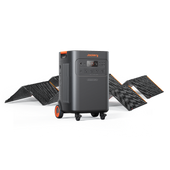











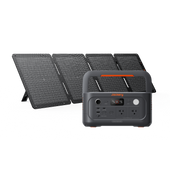





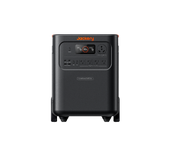
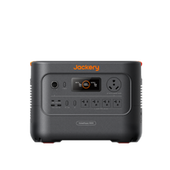





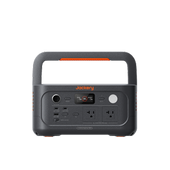





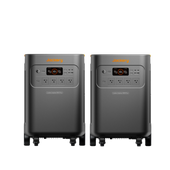
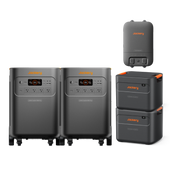





![[Add - on] Jackery Manual Transfer Switch for Explorer 5000 Plus - Jackery](http://www.jackery.com/cdn/shop/files/add-on-jackery-manual-transfer-switch-for-explorer-5000-plus-9017324.png?v=1754016782&width=170)

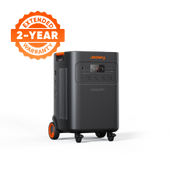
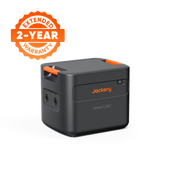
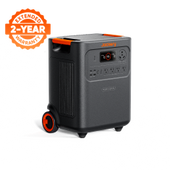
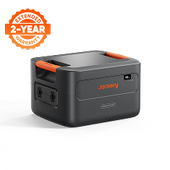
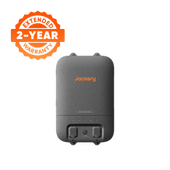



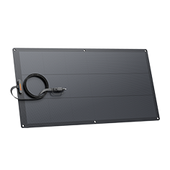
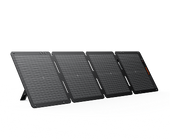




















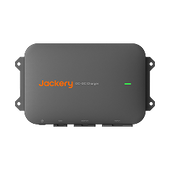




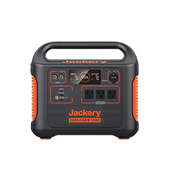







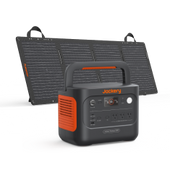
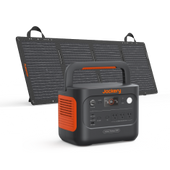





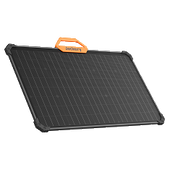
















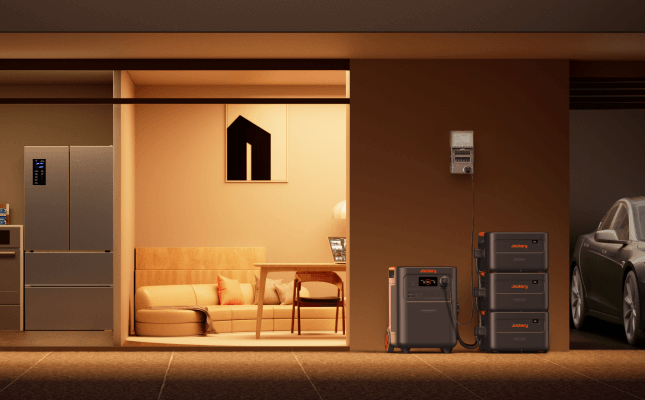


























Leave a comment